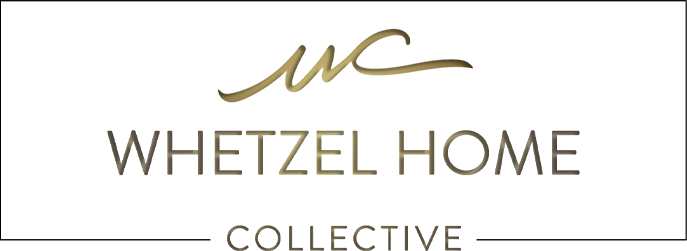Do you dream of owning a home but worry about your credit score? You’re not alone. Many people in St. George, Utah, and the U.S. face this challenge. The good news is that there are more options for poor credit home loans than you might think.
Having a less-than-perfect credit score doesn’t mean you can’t buy a home. There are special loan programs and strategies to help you. These can make it easier to get a mortgage, even with credit issues.
Whetzel Homes Collective knows how tough it can be to buy a home with bad credit. Our team in St. George offers personalized help. With the right advice and support, you can make your dream of owning a home come true.
Key Takeaways
- Credit scores below 580 can qualify for certain mortgage programs
- FHA loans have more flexible credit requirements for buyers
- There are many loan options for those with lower credit scores
- Improving your credit can make buying a home easier
- Getting professional help can guide you through credit challenges
Understanding Credit Scores and Home Buying Requirements
Getting a mortgage with a low credit score can be tough. Credit scores are key in deciding if you can get a mortgage and what terms you’ll get. Knowing how lenders check your credit is important to get a home loan.
What Lenders Consider a Poor Credit Score
In the mortgage world, credit scores are very important for getting a loan. Lenders use the FICO score to see if you’re a good borrower. Here’s how scores are divided:
- Exceptional: 800-850
- Very Good: 740-799
- Good: 670-739
- Fair: 580-669
- Poor: 300-579
Credit Score Range and Ratings Explained
With lower credit scores, finding a mortgage is harder. About 70% of mortgages are conventional, needing a 620 FICO score. Different loans have different score needs:
- FHA Loans: Need a 500 score with 10% down
- VA Loans: Most want a 620 score, but there’s no minimum
- USDA Loans: Look for a 620 score
- Jumbo Loans: Need a 700 score or higher
Impact of Credit Scores on Mortgage Approval
Credit scores affect your mortgage’s terms and rates. A high score, like 780-850, might get you a 5.965% rate. But a 620 score could mean a 7.554% rate. This can mean a lot of extra money over the loan’s life.
Two-thirds of new mortgages go to those with scores over 760. This shows how important a good credit score is.
How to Buy a House with Bad Credit: Step-by-Step Process

Buying a house with bad credit can seem tough. But, with the right credit repair strategies, it’s possible. Lenders have relaxed their credit score requirements, making it easier for people to buy homes.
Here’s a step-by-step guide to help you buy a house with bad credit:
- Check Your Credit Report
- Get free reports from TransUnion, Experian, and Equifax
- First-time buyers often find errors that can be fixed
- Fixing errors can boost your credit score
- Understand Credit Score Requirements
- FHA loans accept scores as low as 500
- Conventional loans need a 620 score
- VA and USDA loans also have a 620 minimum
- Implement Credit Repair Strategies
- Reduce your debt
- Always pay bills on time
- Adding an authorized user can help improve your score
Mortgage Lender Credit Score Requirements:
| Loan Type | Minimum Credit Score | Down Payment |
|---|---|---|
| FHA Loans | 500-580 | 3.5%-10% |
| Conventional Loans | 620 | 3% |
| VA Loans | 620 | 0% |
| USDA Loans | 620 | 0% |
Buying a house with bad credit takes time and planning. Putting down more money can help, even with a low credit score. This can increase your chances of getting a loan.
Types of Mortgages Available for Low Credit Borrowers
Finding a mortgage with poor credit can be tough. But, there are many options for first-time buyers. Knowing these options can help those with lower credit scores become homeowners.
There are various loan types for those with less-than-perfect credit. Each has its own benefits and rules. They offer flexibility for those trying to improve their financial health.
FHA Loans: A Lifeline for Low Credit Borrowers
Federal Housing Administration (FHA) loans are great for those with poor credit. They offer:
- Minimum credit score of 500 for loan qualification
- Down payment as low as 3.5% with 580+ credit score
- 10% down payment for credit scores between 500-579
- More lenient credit requirements compared to conventional loans
VA Loans for Veterans
Veterans and active military members have special mortgage options with VA loans. They include:
- Minimum credit score typically around 620
- Zero down payment option
- Competitive interest rates
- No private mortgage insurance required
USDA Rural Development Loans
USDA loans are for first-time buyers in rural areas. They offer:
- Minimum credit score of 640
- Zero down payment for qualified borrowers
- Income and location restrictions apply
- Designed to support rural community development
Conventional Loan Options
Even with moderate credit issues, traditional mortgages are available. They include:
- Minimum credit score of 620-660
- Slightly higher interest rates for lower credit scores
- More stringent qualification requirements
- Potential for better terms with credit improvement
Each mortgage type has its own benefits for those with poor credit. Choosing the right one depends on your financial situation.
Down Payment Requirements for Different Credit Scores

For homebuyers with lower credit scores, finding down payment requirements can be tough. But, there are many mortgage options for those looking for low credit score mortgages.
Credit scores are key in figuring out down payment needs. Different loan programs have rules for various credit levels:
- FHA Loans: Most flexible for low credit score borrowers
- Credit scores 580 and above: 3.5% down payment
- Credit scores 500-579: 10% down payment
- Conventional Loans: Stricter credit requirements
- Minimum credit score typically 620
- Higher down payments for lower credit scores
Down payment assistance programs can really help buyers with upfront costs. Local and state programs often give grants or low-interest loans to lessen initial costs.
| Credit Score Range | Down Payment | Loan Type |
|---|---|---|
| 300-579 | 10% | FHA |
| 580-669 | 3.5% | FHA |
| 620-850 | 3-20% | Conventional |
Borrowers should look into many options and down payment assistance programs. This way, they can find the best way to become homeowners, even with credit challenges.
Interest Rates and How They Vary by Credit Score
It’s important to know how credit scores affect mortgage interest rates. Your credit score can change the rates and terms lenders offer. This is a key part of getting a mortgage.
Understanding APR Differences
Credit scores are key in setting your Annual Percentage Rate (APR). Lenders use these scores to figure out the risk and set interest rates. In early 2025, those with high credit scores (760-850) get the best rates. But, those with lower scores face higher interest costs.
| FICO Score Range | Average APR | Monthly Payment (30-year, $402,873 loan) |
|---|---|---|
| 760-850 | 7.242% | $2,746 |
| 700-759 | 7.449% | $2,803 |
| 620-639 | 7.838% | $2,911 |
Monthly Payment Comparisons
Lower credit scores mean higher costs for subprime mortgages. For example, scores between 620-639 might lead to a $165 monthly increase. This is compared to those with the best credit.
- Improving your credit score can lower your monthly payments
- Even a small credit score boost can save a lot of money
- Lenders use credit scores to judge the risk of lending
Total Interest Paid Over Loan Term
The long-term effect of credit scores is big. A borrower with a great credit score could save about $59,274 in interest over 30 years. This is compared to someone with a low score.
To improve your credit score, pay bills on time and reduce credit card balances. Also, fix any errors on your credit report. These steps can lead to better mortgage terms and save you money over time.
Working with Mortgage Lenders and Brokers
Getting a home loan with poor credit needs smart talk with lenders and brokers. Knowing their roles helps a lot, more so for first-time buyers.

- Look for lenders that focus on poor credit home loans
- Compare different loan offers to find the best deal
- Get ready with all your financial documents
- Ask for advice on credit counseling
Each lender has its own benefits:
| Lender Type | Credit Score Focus | Potential Benefits |
|---|---|---|
| Direct Lenders | 620-660 Range | Direct loan processing |
| Mortgage Brokers | 580-620 Range | Multiple lender connections |
| Specialized Bad Credit Lenders | 500-579 Range | Flexible underwriting |
Being proactive can help a lot. Understanding credit requirements and preparing detailed financial profiles are key. Many lenders offer free credit counseling to help improve scores before applying.
Remember: Shopping around can save thousands over your mortgage’s lifetime.
Top lenders for poor credit home loans include DHI Mortgage, Cornerstone Home Lending, and Cardinal Financial. They start accepting credit scores as low as 580 for different loan types.
Credit Score Improvement Strategies Before Applying
Getting ready for a mortgage application means planning and taking action. Credit repair strategies can really help you get better home financing. It’s important to know how to boost your credit score.
Credit scores are key for getting a mortgage. A score over 670 is seen as good by lenders. This can lead to better interest rates and more loan options.
Quick Credit Boost Methods
- Become an authorized user on a responsible credit card holder’s account
- Request credit limit increases on existing accounts
- Use rapid rescore services through mortgage lenders
- Pay down credit card balances to reduce credit utilization
Long-Term Credit Building Tips
- Maintain consistent on-time payment history
- Reduce overall debt systematically
- Diversify credit mix with different types of credit accounts
- Avoid opening multiple new credit lines simultaneously
“Improving credit scores is a marathon, not a sprint. Consistent, responsible financial behavior yields the best results.”
| Credit Score Range | Potential Impact on Mortgage |
|---|---|
| Below 580 | Limited loan options, higher interest rates |
| 580-669 | Potential FHA loan qualification |
| 670-739 | Good creditworthiness, competitive rates |
| 740+ | Excellent terms, lowest interest rates |
Using these credit repair strategies can boost your score by 50-100 points. Being patient and managing your finances well are essential. This can help you get a mortgage with better terms.
Down Payment Assistance Programs and Options

Buying a home can be tough, even more so for first-timers with little savings. Down payment help is a big relief for those finding it hard to save for their first home.
In the U.S., there are many down payment help options for homebuyers. These programs are for:
- First-time home buyers
- People with low to moderate incomes
- Veterans and service members
- Those living in rural or suburban areas
Across the country, over 2,500 programs offer grants and loans to help with home buying. Down payment help can be as little as $2,000 or as much as $39,000. This can make buying a home much easier.
What makes down payment help special includes:
- Credit score needs are usually 580 to 640
- Income limits match the area’s median income
- Homebuyer education is required
- It’s first-come, first-served
Some big national programs are the National Homebuyers Fund and the Chenoa Fund. The National Homebuyers Fund gives up to 5% of the mortgage as a grant. The Chenoa Fund offers 3% to 5% down payment help through loans that don’t need to be paid back.
State programs also offer down payment help. For example, Alabama’s Housing Finance Authority gives up to 4% of the home’s price. California’s Housing Finance Agency offers up to 3.5% as a loan that doesn’t need to be paid back until the home is sold.
Homebuyers should look into local and state programs for down payment help. This can make buying a home more affordable.
Understanding Mortgage Insurance Requirements
Exploring mortgage insurance is key for buyers looking at subprime mortgage options. For those with poor credit home loans, knowing these rules can greatly affect their borrowing costs.
Mortgage insurance helps lenders when borrowers put down smaller amounts. It has helped nearly 39 million borrowers buy homes.
PMI vs FHA Mortgage Insurance
There are two main types of mortgage insurance for borrowers:
- Private Mortgage Insurance (PMI):
- Varies based on credit score
- Rates depend on down payment
- Can be canceled after building equity
- FHA Mortgage Insurance:
- Flat-rate structure
- Required for all FHA loans
- Includes upfront and monthly premiums
Cost Implications for Different Credit Scores
Credit scores have a big impact on mortgage insurance costs. Borrowers with lower scores usually pay more, raising their monthly payments.
“Mortgage insurance allows borrowers to qualify with down payments as low as 3%, opening homeownership opportunities.” – Mortgage Industry Expert
For those with subprime mortgage options, knowing about insurance is important. It helps make smart financial choices. The goal is to compare loan costs and find ways to lower long-term expenses.
Common Credit Report Errors and How to Fix Them
Dealing with credit report errors is key to bettering your credit scores. It’s surprising that over a third of mortgage credit reports have mistakes. These errors can harm your financial health.
Fixing these errors needs a smart plan. Mistakes happen for many reasons, like:
- Frequent address changes
- Student loan complexities
- Legal name modifications
- Incorrect account statuses
- Outdated personal information
Start by getting your free annual credit reports from Experian, Equifax, and TransUnion. You can get these reports at AnnualCreditReport.com. Now, you can get free weekly credit reports, making it easier to keep an eye on your credit.
To dispute errors, follow these steps:
- Check your credit reports well
- Spot the specific mistakes
- Collect proof to support your claims
- Send disputes to the credit bureaus
- Check back within 30 days
Credit bureaus must look into disputes within 30 days. If they can’t confirm the info, they must remove it. Winning disputes can boost your credit scores and help with mortgage applications.
Remember: Disputing credit report errors is free and does not negatively impact your credit score.
Alternative Financing Options for Bad Credit Buyers
Homebuyers with bad credit often find it hard to get traditional mortgages. Subprime mortgage options are key for those facing financial hurdles. These options let buyers own a home without meeting usual lending standards.
Finding the right home financing can be tricky. But, there are foreclosure alternatives for buyers with poor credit. These options help make homeownership possible.
Exploring Rent-to-Own Programs
Rent-to-own programs are a great chance for future homeowners. They let buyers:
- Build equity while renting
- Secure a purchase price early on
- Work on their credit score
- Try out the property first
Understanding Owner Financing
Owner financing is another good option for those with credit issues. Here, the seller becomes the lender. This makes buying a home more flexible.
Benefits of owner financing include:
- Quicker approval
- Lower credit score needs
- Flexible terms
- Less closing costs
Buyers should look into these subprime mortgage options. It’s important to know the good and bad sides of these financing choices.
The Role of Income and Debt-to-Income Ratio
When you’re looking for poor credit home loans, knowing your income and debt-to-income (DTI) ratio is key. Lenders check these closely to see if you can handle mortgage payments and stay financially healthy.
The DTI ratio shows how much of your monthly income goes to debt. Lenders usually want this ratio to be 36% or less for the best chance of loan approval.
- Ideal front-end housing to income ratio: 28%
- Recommended back-end DTI ratio: 36%
- Maximum DTI ratio for most lenders: 43%
If you’re looking at debt consolidation loans, a better DTI can really help your mortgage chances. Ways to lower your DTI include:
- Paying down credit card balances
- Getting a side job to increase income
- Cutting out monthly expenses you don’t need
| Loan Type | Maximum DTI Ratio | Additional Requirements |
|---|---|---|
| Conventional Loans | 43-45% | Strong credit history |
| FHA Loans | Up to 50% | Compensating factors required |
| VA Loans | Up to 60% | Veteran status |
Pro tip: Always check your credit report and calculate your DTI. A lower DTI shows lenders you’re financially stable, which is good for poor credit home loans.
Co-Signing and Joint Mortgage Applications

First-time home buyers with poor credit face big challenges. Co-signing is a smart way to get around these issues. A co-signer adds more financial strength to your application, helping you get approved.
When you think about a joint mortgage, knowing the difference between co-signing and co-borrowing is key. Credit scores are very important in this process. Lenders look at the lower middle credit score from three major credit bureaus for joint applications.
- Co-signing means you’re legally responsible for the loan but don’t own the property
- Co-borrowing means you share both the loan and property ownership
- A co-signer needs to have good credit and a stable income
The benefits of co-signing include:
- Higher chances of getting your mortgage approved
- Potentially better interest rates
- Access to bigger loan amounts
But, co-signers take on big financial risks. They’re legally on the hook for the whole loan if the main borrower can’t pay. This is a big deal and needs clear talk and understanding among everyone involved.
Make sure your co-signer knows the financial risks and has excellent credit.
Remember, adding a co-signer can lower your interest rates by 0.5% to 1%. But, not all lenders allow co-signing, and it’s not a guarantee of approval.
Working with Whetzel Homes Collective in St. George
First-time home buyers face many challenges, like navigating through complex programs and loans. Whetzel Homes Collective in St. George, Utah, is here to help. They specialize in guiding buyers with poor credit through the home buying process.
Local Market Expertise that Transforms Home Buying
St. George’s real estate market is unique and requires local knowledge. Whetzel Homes Collective has this expertise. They help clients with poor credit find great opportunities in the market.
Their team supports you at every step of buying a home. They offer:
- Deep understanding of St. George real estate trends
- Personalized mortgage solution strategies
- Proven track record helping first-time home buyers
- Specialized connections with flexible lenders
Personalized Mortgage Solutions for Every Client
Whetzel Homes Collective knows every buyer’s financial situation is different. They create custom plans for first-time buyers. This way, even those with tough credit can own a home.
Ready to start your home buying journey? Call Whetzel Homes Collective at (435) 334-1544. Begin your path to your dream home in St. George, Utah.
Conclusion
Buying a house with bad credit is tough but doable. It takes careful planning and hard work to improve your credit score. FHA loans, for example, can be obtained with a score as low as 500. This shows that even with bad credit, you can own a home.
Learning how to buy a house with bad credit means looking at different strategies. Lenders like Rocket Mortgage and Homebridge offer loans for those with scores between 500-580. This proves that low credit doesn’t mean you can’t buy a home.
Boosting your credit score is key to buying a home. Keep your credit card balances low, pay bills on time, and seek help from housing counselors. Remember, improving your credit takes time and effort.
Your dream of owning a home is not out of reach. With the right planning, knowledge of mortgage options, and a commitment to better your credit, you can buy a home. Start by checking your finances and looking into the mortgage options mentioned in this guide.
